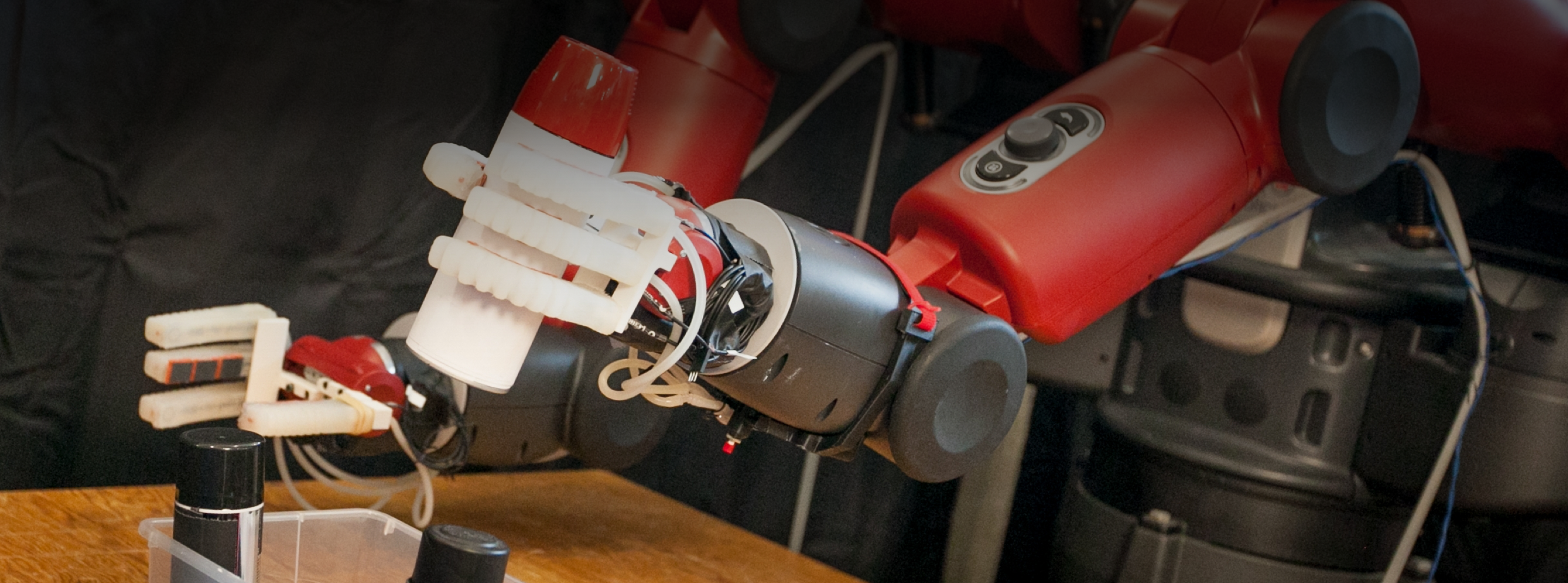Written by Matthew Busekroos | Produced by Andrew Zucosky | June 16, 2025
Nicholas Pfaff is a PhD student in the Robot Locomotion Group (RLG) at MIT’s Computer Science and Artificial Intelligence Laboratory (CSAIL), where he is pursuing foundational research in robotic manipulation and simulation. Pfaff’s academic and professional journey spans several countries, including Germany, Switzerland, Canada, the United Kingdom, and the United States—an experience that has shaped a distinctly global and interdisciplinary perspective.
While completing an MEng at Imperial College London Pfaff spent a year at MIT through the MIT-Imperial exchange program. “At MIT, I decided to dive as deep into academic research as possible,” Pfaff said. “I found the experience incredibly rewarding—being surrounded by experts in the field accelerated my learning in ways that industry simply couldn’t.”
Pfaff’s transition from industry to academia was driven by a desire to engage in long-term, high-impact research. In academia, “significantly riskier bets are possible—unlike industry, where short-term stakeholder satisfaction often takes priority. MIT, in particular, fosters ambitious research by providing students with nearly unlimited resources,” he said. This environment laid the groundwork for Pfaff’s current doctoral work.
At CSAIL, Pfaff works under the guidance of Professor Russ Tedrake. The collaborative and interdisciplinary nature of the Robot Locomotion Group plays a central role in his development as a researcher.
“The group is filled with some of the smartest people I know,” he said. “[Prof. Tedrake] intentionally brings in students with diverse technical backgrounds, creating an environment where cross-disciplinary exchange is not only encouraged but essential.”
Pfaff’s research focuses on enabling scalable, realistic simulations to generate the training data necessary for developing robotic manipulation foundation models. This effort aligns with recent shifts in artificial intelligence, where performance breakthroughs, such as those seen in natural language processing and computer vision, were largely enabled by access to massive datasets, rather than novel algorithms.
“My goal is to help bring about a similar transformation in robotics,” Pfaff said. “We are working toward a system that, like ChatGPT for language, could perform a wide range of physical tasks through a single general-purpose model.” However, the field of robotics still lacks the extensive data required to achieve this, making simulation an essential focus of the group’s work.
Current projects include the development of a pipeline that creates simulation-ready assets from real-world objects, incorporating both visual and physical properties such as mass and inertia—attributes that cannot be captured through imagery alone. In parallel, Pfaff is working on generative models capable of synthesizing realistic environments based on high-level prompts, with the long-term goal of learning these models from large-scale visual data.
These research contributions are garnering attention from industry. Pfaff has collaborated with Amazon Robotics and the Toyota Research Institute, applying their object-level and scene-level simulation techniques to real-world use cases. “Amazon is exploring ways to integrate our reconstruction pipeline into their warehouse simulations, while Toyota is interested in leveraging our scene-generation work to develop their own foundation models,” Pfaff said.
Pfaff cites a deep intellectual curiosity and a desire to translate technical advances into societal benefit, which drives his research.
“I want to see how far we can push robotics and whether we can achieve the kind of general-purpose systems envisioned in science fiction,” he said. “At the same time, I’ve seen firsthand how even incremental improvements in automation—such as simplifying pick-and-place tasks in grocery warehouses—can significantly improve working conditions.”
Looking ahead, Pfaff envisions returning to Europe to work in industry, where he can apply his academic expertise to real-world robotics systems. “Ultimately, I hope to develop robotics products that have a meaningful and positive impact on society.”
Outside of research, Pfaff is committed to leading a well-rounded life. An avid rock climber and Latin social dancer, Pfaff is also a passionate coffee enthusiast and previously taught a specialty coffee course at MIT. Pfaff also recently received the Graduate Teaching Award from the MIT Schwarzman College of Computing.
Read more about Nicholas Pfaff and his research on his personal website—https://nepfaff.github.io/.

